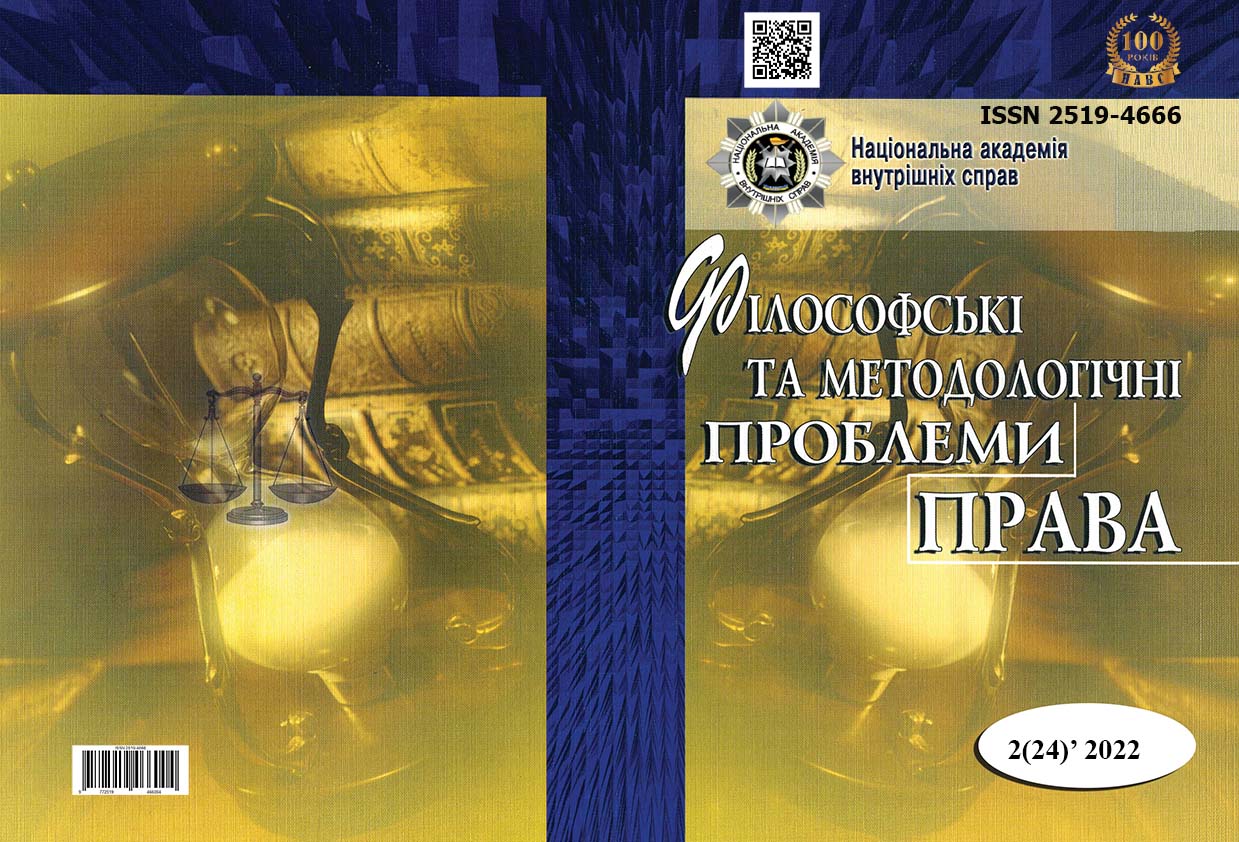Fakes as a Threat to National Security in the Conditions of a Hybrid War
Abstract
The purpose of the article is to investigate fakes as a tool in hybrid warfare and as a threat to national security. In order to achieve the goal, the nature of fakes, their types, reasons for their origin and spread, features of their nature – the ability to self-reproduce and spread rapidly – were analyzed. This intelligence became possible thanks to the completed study of scientific works devoted to this topic and the analysis of the current situation in the information field of Ukraine. Methodology. In the process of preparing the article, a socio-cultural methodological approach and a number of scientific methods were applied, the most important of which are: dialectical, generalization, comparative, hermeneutic. Such a set of methodological tools ensured the integrity of the study of clarifying the role and place of fakes in modern everyday life and in the conditions of waging a hybrid war. The scientific novelty lies in the fact that the article highlights the origins of fakes and explains the reasons for their spread in our time. The specificity of fakes as an element of the modern information society and as a tool for waging hybrid warfare is indicated, and it is proved that fakes are one of the threats to national security at the current stage of development. Conclusions. It is shown that fakes are a threat to national security today. A number of steps are proposed to overcome the harmful influence of fakes on Ukrainian society both at the individual level and at the state level.
Keywords: national security; threats to national security; information society; misinformation; fakes; after the truth.
Downloads
References
Павленко Д. Г., Семенюк Ю. В., Лисецький Ю. М. Національна безпека: поняття, складники, чинники впливу. Вчені записки Таврійського національного університету імені В. І. Вернадського. 2021. № 3. Т. 32 (71). С. 102–107. (Серія «Державне управління»). DOI: https://doi.org/10.32838/TNU-2663-6468/2021.3/17.
]Малинка В. Як Франція бореться з фейками: деталі ухвалених законів. URL: https://www.google.com/search?q.
Вовк В. М., Олійник У. М. Право бути забутим як «нове право» людини у діджиталізованому суспільстві. Науково-інформаційний вісник Івано-Франківського університету права імені Короля Данила Галицького. 2020. № 10 (22). С. 16–22. (Серія «Право»). DOI: 10.33098/2078-6670.10.22.16-22.
Toffler A. H. War and antiwar. URL: https://ia801301.us.archive.org/6/items/WarAndAntiWar-Toffler/War-And-Anti-War_-_Toffler.pdf.
Муратова Н., Тошпулатова Н., Алимова Г. Fake news: дезинформация в медиа : пособие. Ташкент : Innovatsion rivojlanish nashriyot-matbaa, 2020. 104 с.
Lem S. Summa technologiae. URL: https://archive.org/details/StanislavLemSummaTechnologiae.
Kelsey J. T. G. Hacking into International Humanitarian Law: The Principles of Distinction and Neutrality in the Age of Cyber Warfare. Michigan Law Review. 2008. No. 7. Р. 1445.
Черниш Р. Ф. Фейк як один із інструментів негативного впливу на національну безпеку України в умовах ведення гібридної війни. Часопис Київського університету права. 2019. № 2. С. 109–114. DOI: 10.36695/2219-5521.2.2019.19.
Psychological Defence Agency. URL: https://www.mpf.se/en/.
Центр протидії дезінформації при РНБО. URL: https://cpd.gov.ua/category/reports/#.
ЦПД при РНБО України ініціює створення міжнародного хабу з протидії інформаційним загрозам. Рада національної безпеки і оборони України : [сайт]. URL: https://www.rnbo.gov.ua/ua/Diialnist/5708.html.
Abstract views: 586 PDF Downloads: 1453
Copyright (c) 2023 Philosophical and Methodological Problems of Law

This work is licensed under a Creative Commons Attribution-NonCommercial-NoDerivatives 4.0 International License.
- Authors reserve the right to authorship of their own work and transfer to the magazine the right of the first publication of this work under the terms of the Creative Commons Attribution License, which allows other persons to freely distribute published work with mandatory reference to authors of the original work and the first publication of an article in this magazine.
- Authors have the right to enter into separate additional agreements on non-exclusive dissemination of the work in the form in which it was published in the journal (for example, to post an article in the institution's repository or to publish as part of a monograph), provided that the link to the first publication of the work in this journal is maintained.
- The journal's policy allows and encourages the posting of articles by authors on the Internet (for example, in electronic storehouses of institutions or on personal websites), both before the submission of this manuscript to the editorial office and during its editorial processing, as this contributes to the creation of a productive scientific discussion and positively affects the efficiency and dynamics of citing the published work.




